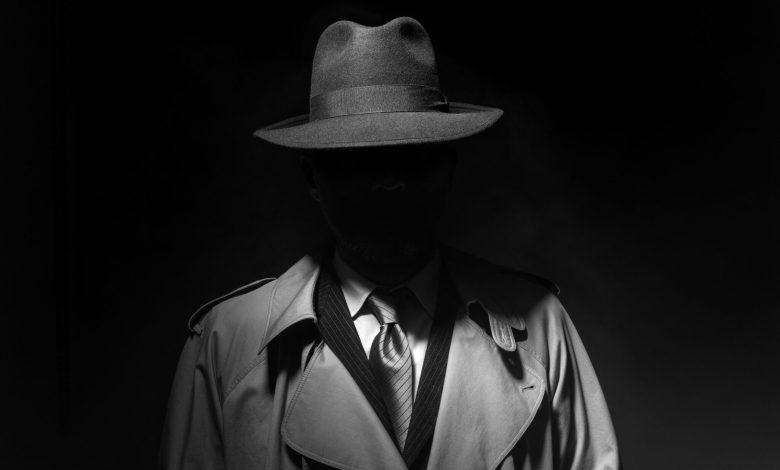The Ultimate Guide to the Most Excellent Spy Thriller Movies of All Time!

In the vast universe of cinematic genres, spy thrillers have consistently captivated audiences with their intricate plots, high-octane action, and the allure of the clandestine world of espionage. These films, often mirroring the geopolitical tensions of their times, offer a unique blend of suspense, drama, and sometimes even romance. Whether it’s the suave James Bond with his iconic gadgets or the cerebral tales inspired by John le Carré’s novels, spy thrillers have evolved, adapted, and continued to enthrall us. This guide aims to take you on a journey through the most excellent spy thriller movies of all time, exploring their significance, their stories, and the magic that makes them unforgettable.
KEY TAKEAWAYS
- Spy thrillers have been a cinematic favorite, reflecting geopolitical tensions and human curiosity about the world of espionage.
- Classics like “North by Northwest” set the foundation for the genre, while modern gems like “Skyfall” have redefined it.
- Real-life events, such as the Cold War and technological advancements, have heavily influenced the evolution of spy movies.
- Actors like Sean Connery and Matt Damon have become synonymous with iconic spy characters.
- While many spy gadgets in films seem fantastical, some are rooted in reality and used in real-world espionage.
- Different countries portray espionage uniquely, influenced by their cultural, historical, and political contexts.
- Female spies in movies have evolved from secondary characters to central, empowered figures.
- Cyber espionage is becoming a prominent theme in contemporary spy movies.
Which are the most excellent spy thriller movies of all time?
The Classics:
-
- Director: Alfred Hitchcock
- Synopsis: A mistaken identity thrusts a man into a world of espionage and danger.
- Why it’s a must-watch: Hitchcock’s mastery in suspense is unparalleled, and this film is a testament to that.
The Spy Who Came in from the Cold (1965)
-
- Director: Martin Ritt
- Synopsis: A British agent is sent to East Germany as a faux defector to sow disinformation.
- Why it’s a must-watch: Based on John le Carré’s novel, this film captures the bleakness of cold war espionage.
Tinker Tailor Soldier Spy (2011)
-
- Director: Tomas Alfredson
- Synopsis: In the bleak days of the Cold War, espionage veteran George Smiley is forced from semi-retirement to uncover a Soviet Agent within MI6.
- Why it’s a must-watch: A slow-burning thriller with a star-studded cast, it’s a modern classic.
The Modern Gems:
-
- Director: Various
- Synopsis: Jason Bourne, a former CIA assassin suffering from amnesia, tries to piece together his past while being hunted by the agency.
- Why it’s a must-watch: A perfect blend of action and espionage, with Matt Damon delivering a stellar performance.
-
- Director: Sam Mendes
- Synopsis: James Bond’s loyalty to M is tested when her past comes back to haunt her.
- Why it’s a must-watch: Arguably one of the best Bond films, with breathtaking visuals and a compelling storyline.
-
- Director: Steven Spielberg
- Synopsis: An insurance lawyer finds himself in the center of a cold war prisoner exchange.
- Why it’s a must-watch: A gripping tale of diplomacy and negotiation, backed by Spielberg’s direction.
The Underrated:
-
- Director: Robert De Niro
- Synopsis: The tumultuous early history of the Central Intelligence Agency is viewed through the prism of one man’s life.
- Why it’s a must-watch: A deep dive into the world of espionage, with a stellar performance by Matt Damon.
-
- Director: Steven Spielberg
- Synopsis: Based on the true story of the Black September aftermath, about the five men chosen to eliminate the ones responsible for that fateful day.
- Why it’s a must-watch: A thought-provoking film that delves into the morality of revenge.
By the Numbers: A Quick Comparison
| Movie Title | Release Year | IMDb Rating | Rotten Tomatoes Score |
|---|---|---|---|
| North by Northwest | 1959 | 8.3/10 | 99% |
| The Spy Who Came in from Cold | 1965 | 7.6/10 | 85% |
| Tinker Tailor Soldier Spy | 2011 | 7.1/10 | 83% |
| The Bourne Identity | 2002 | 7.9/10 | 83% |
| Skyfall | 2012 | 7.7/10 | 92% |
| Bridge of Spies | 2015 | 7.6/10 | 91% |
Further Reading and Resources:
Spy thriller movies have always been a reflection of the times they were made in, capturing the essence of geopolitical tensions, technological advancements, and the ever-evolving nature of espionage. Whether you’re a fan of the classics or more modern tales, there’s no denying the allure and excitement that these films bring. Dive into these masterpieces and experience the thrill of the chase, the tension of the unknown, and the satisfaction of a plot well unraveled.
Frequently Asked Questions (FAQ)
1. Why are spy thriller movies so popular?
Spy thriller movies tap into a universal human curiosity about the clandestine world of espionage. This genre often showcases a blend of suspense, action, and drama, which provides a roller-coaster of emotions for the audience. The allure of the unknown, combined with the thrill of danger and the intellectual challenge of unraveling complex plots, makes spy thrillers an irresistible genre for many.
Moreover, spy movies often reflect the geopolitical tensions of their times. From the Cold War era to modern-day cyber espionage, these films serve as a mirror to the world’s ever-evolving political landscape. They offer viewers a fictionalized yet insightful look into the covert operations that might be happening behind closed doors, adding an element of realism and relevance to the cinematic experience.
Lastly, the characters in spy thrillers are often multi-dimensional, facing moral dilemmas and personal challenges. This depth adds layers of complexity to the narrative, making it more engaging and relatable for the audience.
2. How have spy thriller movies evolved over the years?
The evolution of spy thriller movies can be traced alongside technological advancements and shifting global politics. In the mid-20th century, spy films were heavily influenced by the Cold War, focusing on espionage between the East and the West. These movies often portrayed a clear distinction between the “good” and the “bad.”
However, as the world moved into the 21st century, the lines began to blur. Modern spy thrillers often delve into the gray areas of morality, showcasing anti-heroes and complex characters. The rise of technology has also influenced the genre, with cyber espionage and high-tech gadgets becoming central plot elements.
Furthermore, the narrative style has evolved. Earlier films were slower, relying heavily on dialogue and suspense. Modern films, while still valuing a strong storyline, often incorporate intense action sequences and special effects, catering to contemporary audiences’ expectations.
3. Who are some iconic actors known for their roles in spy thrillers?
Sean Connery is undoubtedly one of the most iconic actors in the spy thriller genre, primarily for his portrayal of James Bond in the early Bond films. His suave demeanor and charismatic presence set the standard for many spy characters that followed.
Another notable actor is Matt Damon, who brought to life the character of Jason Bourne in the “Bourne” series. His portrayal of a spy with amnesia trying to piece together his past while being pursued by the government added depth and vulnerability to the typical spy persona.
Lastly, Gary Oldman’s portrayal of George Smiley in “Tinker Tailor Soldier Spy” deserves mention. His subtle yet powerful performance showcased the quieter, more cerebral side of espionage, a stark contrast to the action-packed sequences often associated with the genre.
4. Are there any real-life events that inspired popular spy movies?
Yes, many spy movies draw inspiration from real-life events. For instance, “Bridge of Spies” is based on the true story of the 1962 exchange of captured American U-2 pilot Francis Gary Powers for Soviet spy Rudolf Abel on the Glienicke Bridge in Berlin.
“Munich” is another example, which delves into the aftermath of the Black September terrorist attack during the 1972 Olympics. The film follows a team of Israeli agents tasked with hunting down and assassinating those responsible.
These real-life inspirations add a layer of authenticity to the films, making them more compelling and resonant with audiences who are aware of the historical context.
5. How do spy movies impact public perception of real-world intelligence agencies?
Spy movies, while fictional, have a significant influence on how the general public perceives intelligence agencies. Films that showcase agencies like the CIA or MI6 in a positive light, portraying them as organizations fighting for justice and global stability, can bolster public trust and admiration.
Conversely, movies that highlight the darker aspects of espionage, such as government cover-ups, illegal operations, or violations of civil rights, can foster skepticism and distrust towards these institutions.
It’s essential to remember that while these films might be rooted in some truths, they are primarily entertainment mediums and may not accurately represent the intricacies and moral complexities of real-world intelligence operations.
6. How accurate are the gadgets shown in spy movies?
While spy movies often showcase a range of high-tech gadgets, not all of them are rooted in reality. Films, especially those in the James Bond series, are known for their imaginative and sometimes outlandish devices, from cars that turn into submarines to pens that function as explosive devices.
However, some gadgets have a basis in reality. For instance, concealed listening devices, hidden cameras, and tools for covert communication have been used in real-life espionage. But, the cinematic versions are often exaggerated for dramatic effect.
It’s also worth noting that real-world intelligence agencies are continually developing new technologies, some of which remain classified. So, while a particular gadget might seem far-fetched today, it could become a reality in the future.
7. Are there any spy movies directed by former spies or based on their experiences?
Yes, there are films that have been influenced directly by former spies or their experiences. One of the most notable examples is John le Carré, a former British intelligence officer. Many of his novels, which draw from his experiences in the intelligence community, have been adapted into films. “The Spy Who Came in from the Cold” and “Tinker Tailor Soldier Spy” are two such adaptations.
These movies, influenced by real-life experiences, often present a more nuanced and realistic portrayal of the world of espionage, focusing on the moral ambiguities and personal tolls of the profession.
8. How do spy movies from different countries differ in their portrayal of espionage?
Cultural, historical, and political contexts heavily influence spy movies from different countries. For instance, American spy films, especially during the Cold War era, often portrayed the CIA as heroes battling against the “evil” Soviet Union. In contrast, Russian films from the same period might showcase their spies as patriots defending their homeland against Western aggression.
Similarly, British spy films, like those based on John le Carré’s novels, often delve into the moral ambiguities of espionage, reflecting the country’s complex history with its intelligence agencies.
Asian spy films, especially from countries like South Korea, often incorporate elements of their tumultuous political history, such as tensions between North and South Korea, giving them a unique flavor and perspective.
9. How do female spies in movies differ from their male counterparts?
Historically, female spies in movies were often relegated to secondary roles, serving as love interests or damsels in distress. However, as societal views on gender roles evolved, so did the portrayal of female spies in cinema.
Modern films often showcase female spies as competent, intelligent, and every bit as capable as their male counterparts. Characters like Atomic Blonde’s Lorraine Broughton or the recent iterations of the female James Bond characters are testaments to this shift.
However, female spies in movies often face challenges and dilemmas unique to their gender, such as battling stereotypes or using societal underestimations to their advantage. These added layers of complexity make their narratives rich and engaging.
CONCLUSION
The world of spy thriller movies is as vast and varied as the covert operations they depict. From the shadowy alleyways of Cold War Europe to the high-tech corridors of modern intelligence agencies, these films have given us a window into a world few of us will ever experience firsthand. They challenge our perceptions, entertain us with their twists and turns, and, most importantly, remind us of the complexities of the human spirit. As technology advances and global politics shift, the genre will undoubtedly continue to evolve, but its essence will remain unchanged: a celebration of intrigue, resilience, and the eternal game of cat and mouse. Dive into these cinematic masterpieces, and let yourself be transported into the thrilling world of espionage.
See Other Ranking:

















